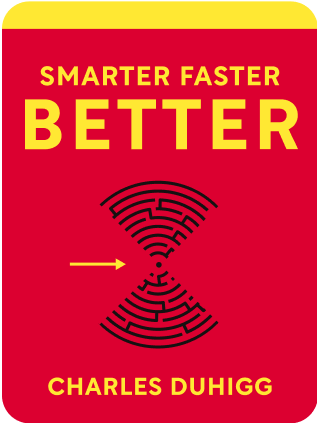

This article is an excerpt from the Shortform book guide to "Smarter Faster Better" by Charles Duhigg. Shortform has the world's best summaries and analyses of books you should be reading.
Like this article? Sign up for a free trial here .
What ingredients do you need to build an effective team? What can be learned from Google’s experience?
In the early 2010s, Google began to research how to build an effective team. They learned that teams should have four key norms. What they discovered about team productivity can work for your team, as well.
Read more to learn how to build an effective team.
Productivity Depends on Effective Teams
At some point in your working life, it’s almost guaranteed that you’ll need to work in a team. In this situation, maintaining your personal productivity isn’t always enough for you to meet your goals. Instead, the team as a whole must be productive. How can you ensure that this is the case? What are the secrets to creating a productive team?
What It Takes to Build an Effective Team
Creating a productive team isn’t necessarily about who is part of the team. Research has shown that the personal attributes of team members are not that important when it comes to making a team effective. For example, one study found that having a team filled with people with high intellect didn’t necessarily mean that the team would be more productive. In fact, the opposite often proved to be true. These teams were often less effective than teams made up of people with lower intellect.
Instead, to build an effective team, you must create the right norms within the team environment. Norms are the unwritten and unspoken rules about behavior that exist within a particular group. These rules control factors such as how people communicate, how members treat each other, and how decisions are made.
Norms can have a negative impact on a team’s effectiveness; for example, if there are norms of giving unconstructive or overly harsh criticism, placing personal gain over the aims of the team, or constant competition between members to become the team leader.
Similarly, generating the right norms can hugely improve a team’s effectiveness and thus its productivity. Research suggests that the norm that is most crucial when you build an effective team is psychological safety.
Psychological Safety
When a team is psychologically safe, the members of the team believe that they can share their views and take risks without having to fear retaliation or rejection.
Psychologically safe teams have a culture that encourages participation from every member and discourages needless or overly harsh criticism or judgment. People don’t face punishment or humiliation for sharing their views, even if these views go against the general group consensus. Debate is encouraged rather than avoided. Such a culture requires respect and trust between the members of the team.
Example: Google’s Mission to Build an Effective Team
In the early 2010s, Google began to research how to construct a perfect team. They codenamed their efforts Project Aristotle.
Before the study began, Google’s researchers defined the criteria of what made a successful team. These criteria included whether the team met their targets or goals, and the feelings of the members of the team. Did they feel productive? Were they happy in the team?
The first phase of the study focused on who was in each team. What were their personality types and backgrounds? Did they have certain skills or characteristics? How did the team members interact with each other? Did they socialize outside of work?
Ultimately, the researchers found no evidence that the makeup of a team made any difference to team productivity. Most strikingly, teams that had almost the exact same membership could vary wildly in their effectiveness.
Next, the project examined each group’s norms. Did the team encourage debate or lean towards groupthink? Did they interrupt each other or take turns to make their points?
After analyzing each team and their differing norms, the researchers found that some norms are frequently linked to effective teamwork. They specifically found that many of the norms that correlated with effective teamwork were linked to psychological safety.
Eventually, Google’s researchers outlined the key norms that effective teams should have:
- Team members should possess the conviction that the work they are doing is both important and meaningful.
- The team needs to clearly define both their goals and each member’s role in the team.
- Team members should see each other as dependable – they should feel that they can rely on each other.
- Most crucially, the team members should feel psychologically safe.
Google learned how to build an effective team. You, too, can apply these principles to achieve greater team productivity.

———End of Preview———
Like what you just read? Read the rest of the world's best book summary and analysis of Charles Duhigg's "Smarter Faster Better" at Shortform .
Here's what you'll find in our full Smarter Faster Better summary :
- Why becoming more productive isn’t about working longer hours or constantly pushing yourself to do more
- The 8 principles for improving productivity
- How to create a work culture in which each employee is truly valued






